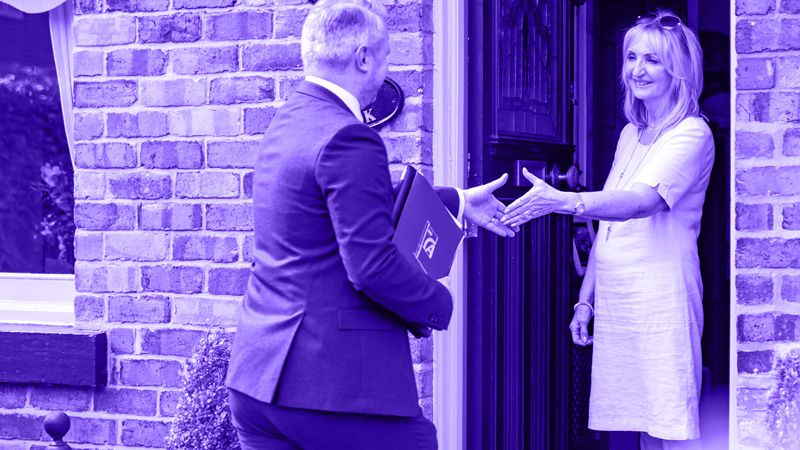Rising living costs are still impacting many people in the UK. Recent data shows that 49% of households reported an increase in living costs as of September 2024, making a mortgage with flexible features to navigate uncertain times an attractive option.
With a flexible mortgage, you can pay more when you can, pay less when money is tight, or take a payment holiday to ease financial distress when necessary. However, flexible mortgages also feature various limits and restrictions you need to be aware of.
Here is everything you need to know about flexible mortgages in the UK.
What is a Flexible Mortgage?
A flexible mortgage is a mortgage with a greater degree of flexibility around repayment than a standard mortgage. It’s sometimes called a flexi mortgage and can allow you to clear your mortgage in less time than the full term and save money on interest or pause and reduce your repayments.
A flexible mortgage can be a suitable choice if your income fluctuates and you want the freedom to decrease or increase your payments as necessary. It can also benefit people who frequently travel or take time off work with less or no income or those planning to overpay without penalties.
What are the Features of a Flexible Mortgage?
A flexible mortgage can offer various features depending on the lender and product. These include:
Overpayments
Flexible mortgages allow you to make more significant overpayments without early repayment charges (ERCs). Overpaying can involve paying more than your regular monthly repayments or paying a lump sum in addition to the monthly repayment. It can help reduce the time it will take to pay off the mortgage and the interest you pay in total.
Some lenders can set caps on how much you can overpay each year, so ensure you check the terms and conditions of the mortgage before overpaying.
Underpayments
Underpayments allow you to pay less than the standard monthly amount for a set period. Such a feature can be helpful in periods when you’re particularly pressed for money, but it can vary depending on the lender. Some lenders can limit how much you can underpay, while others will only allow it if you have previously overpaid on your mortgage.
Payment Holidays
A payment holiday allows you to take a break and skip monthly payments for a set time, usually one to six months. It can come in handy when you need some time to get back on your feet. You’ll not face any penalties, but you’ll need to catch up with the payments before the end of your term.
The interest will also continue accruing throughout the payment holiday, so your repayments can be higher when you resume. Some lenders may require to have overpaid or made a certain number of payments to qualify for a payment holiday.
Drop-lock
If you’re on a tracker or discount mortgage with a variable deal, a drop-lock feature allows you to switch to a fixed-rate deal without facing early repayment charges or remortgaging to another lender. It can be helpful when interest rates start increasing and you want the security of a fixed rate.
Reserve Account
Lenders offering this feature will let you make overpayments to a reserve account. It will offer all the benefits of making overpayments but with the additional advantage of allowing you to withdraw the cash later if your situation changes.
Related reading:
- Reasons for remortgaging.
- Remortgaging to release equity.
- Remortgaging to buy another property.
- Remortgaging with bad credit.
- Remortgaging for home improvements.
- I own my house outright can I remortgage?
- Capital raising mortgages.
What Are the Advantages and Disadvantages of Flexible Mortgages?
Advantages
- More freedom to overpay, underpay, or take a payment holiday when you want or need to.
- Lenders calculate interest daily. Any overpayment you make is immediately deducted from your debt instead of monthly or yearly for the purposes of calculating interest, allowing you to pay less interest.
- Makes it easier to switch to better deals if the interest rate changes.
- It can help you clear your mortgage quicker and save money
Disadvantages
- They usually feature higher interest rates and fees than mortgages without flexible features.
- They’re difficult to compare since different lenders will set different terms, conditions, and restrictions.
- You may still face limits on how much you can overpay or underpay.
What Should You Consider When Choosing a Flexible Mortgage?
Things to consider when choosing a flexible mortgage include:
Additional Charges
Like other mortgages, flexible mortgages can feature various charges, including arrangement fees, exit fees, or valuation fees. The lender can also charge you when you exceed their cap on overpayments, so you must consider the cost to ensure you’re still saving money.
You must also consider the standard variable rate (SVR) that applies after the initial period to get a complete understanding of the comparative costs.
Identify Relevant Features
Ensure you consider your situation and the features you want in a flexible mortgage. Many people choose flexible mortgages so they can get the option to overpay and decide how much they overpay. Ensure you check how much the lender allows you to overpay without additional fees.
Since all lenders are different, look for lenders offering the specific features you desire while also considering other factors like the rate, term, or needed deposit.
Can You Get a Flexible Mortgage on A Buy-to-Let Property?
Yes. Some lenders offer flexible features on buy-to-let mortgages but they can differ from those of a residential mortgage. Mortgages for investment properties are usually interest-only mortgages where the capital amount remains the same throughout the term, and you only pay off the interest monthly.
You’re then required to pay off the capital amount at the end of the term using a repayment vehicle. A lender can set up a flexible mortgage for a buy-to-let property to include allowing capital repayments that reduce the debt amount. This can help reduce your overall interest and the due amount at the end of the term.
Final Thoughts
A flexible mortgage is an excellent choice if you’re looking for freedom in mortgage repayments. Ensure you consult a mortgage broker specialising in flexible mortgages when making your decision. They can help you determine whether it’s the best choice based on your situation and give you access to the best deals available on the market.
Call us today on 01925 906 210 or contact us to speak to one of our friendly advisors.
Sources and References:
- https://www.statista.com/statistics/1300280/great-britain-cost-of-living-increase/

















